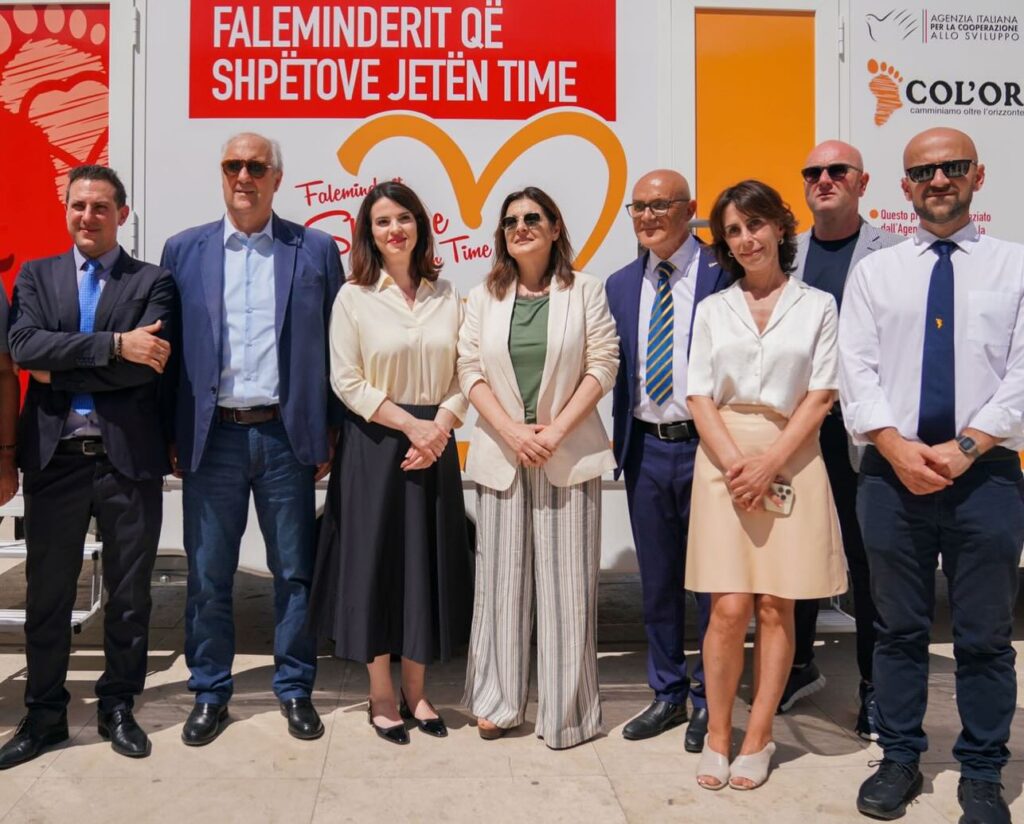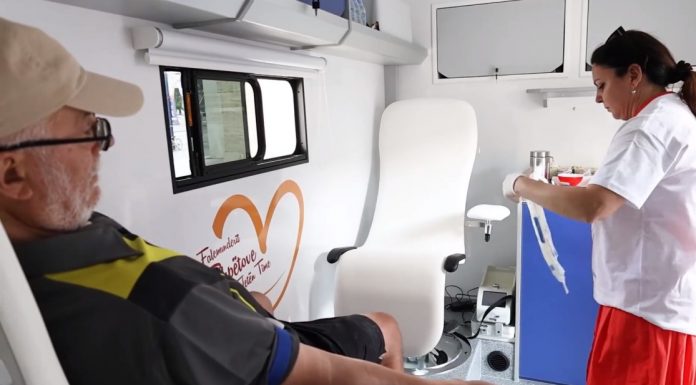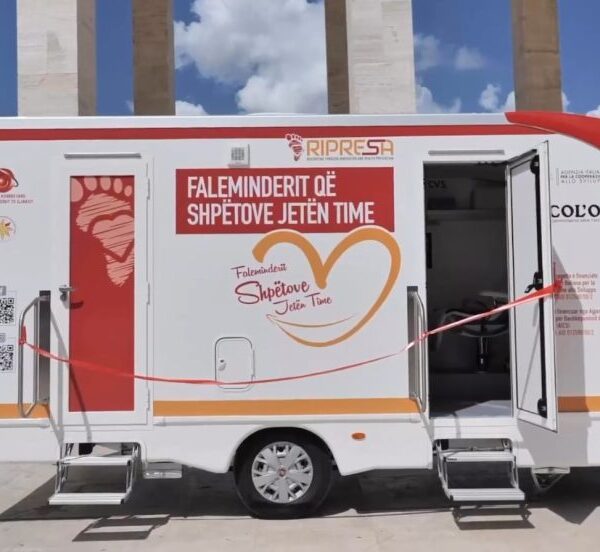The Albanian healthcare system is facing significant challenges, particularly regarding blood supplies. The demand has significantly increased in recent years due to a rise in road accidents, surgical procedures, and the needs of patients with anemia. Ongoing shortages in hospitals and clinics have prompted innovative solutions. Like the Autoemotekat (blood buses), mobile vehicles for collection, have been designed to make blood donation easier and more accessible for citizens.
According to the data from the University Hospital Center "Mother Teresa" (QSUT), around 100 units of blood are needed daily solely for patients suffering from thalassemia, a severe blood disorder requiring regular transfusions. Currently, only half of this need can be met. This shortage has become more acute due to the increase in road accidents and surgical needs, which also require large quantities of blood.
In this context, the Italian Agency for Development Cooperation presented the "blood buses" project, a mobile collection system. These special vehicles, equipped with the latest technology, can travel throughout Albania. They reach communities in remote areas where it is challenging to travel to major cities to donate blood.
For Dr. Natale Capodicasa, president of the Albanian Organization of Volunteer Blood Donors, this initiative represents a big step forward. "This mobile unit is a dream come true," she declares. "It will allow us to reach every city and village in Albania to facilitate blood donation for citizens who have difficulty traveling." The Minister of Health, Albana Koçiu, also emphasizes the importance of this initiative in improving the blood supply, "an exceptional opportunity that will help hospitals throughout the country."

A broad international support
The project was developed and co-financed in collaboration with the Italian Agency for Development Cooperation for an amount of approximately 1,400,000 euros. Stefania Vizzaccaro, director of this agency, also emphasizes the importance of the accompanying communication. "We have launched an awareness and education campaign, especially targeting young people, on the importance of blood donation. We want to involve schools and communities to educate citizens about this simple act that saves lives."
Albania is not the only one facing blood shortages, and the use of mobile vehicles for collection has yielded positive results in other countries. Some have integrated this type of mobile units into their health strategy.
In Italy, for example, similar vehicles have been successfully used to ensure sustainable supply, traveling hundreds of kilometers in rural and remote areas. One of the most successful examples is the "AVIS" (Associazione Volontari Italiani del Sangue), which organizes blood drives and awareness campaigns.
The equivalent can even be found in the United States. The "bloodmobiles" are equipped to collect blood from citizens in remote areas and during mass events such as concerts or sports events. These vehicles have also helped increase the number of voluntary donors in case of emergencies, during hurricanes or natural disasters.
Essential information campaigns
An essential aspect of the mobile collections initiative is the awareness campaign that accompanies it. Aiming to encourage citizens, especially the youth, to donate blood. Within this framework, educational and informative activities will be organized in schools, universities, and community centers to spread the message that donating blood not only saves lives but also strengthens community ties.
With funding from various public and private institutions, the project goal is to create an integrated network throughout Albania. These mobile collections indeed offer an easier and safer opportunity for potential donors to get involved in this process. The project also includes collaboration with local media to spread these messages.
Another important aspect is the benefit for the donors themselves. They receive regular medical check-ups, including free tests for infectious diseases such as hepatitis B, C, HIV, and syphilis. For regular donors, additional tests are available to monitor sugar, creatinine, and cholesterol levels, making donation a double advantage: helping the sick and regular monitoring of personal health.
Ultimately, these mobile collections represent a significant change in the way blood collection is organized and managed in the country. It is also an example of successful international cooperation and a model for the future of Albanian healthcare services.

